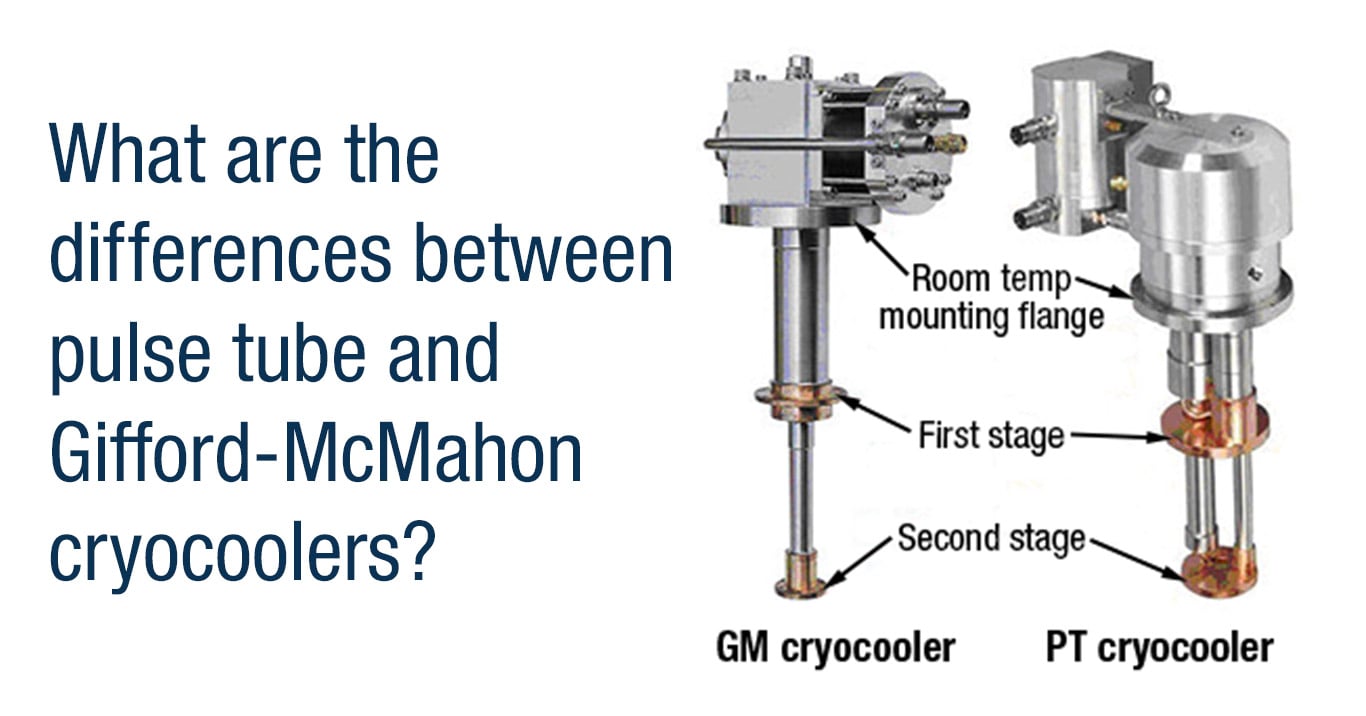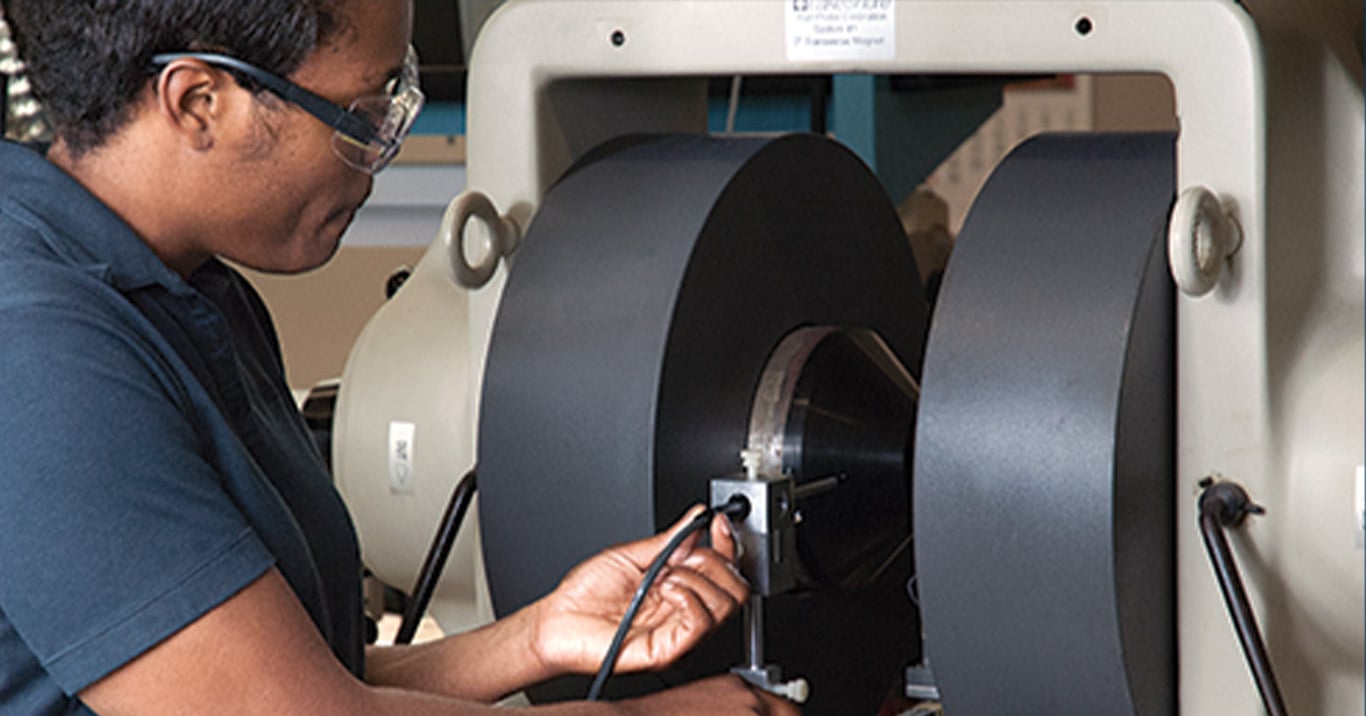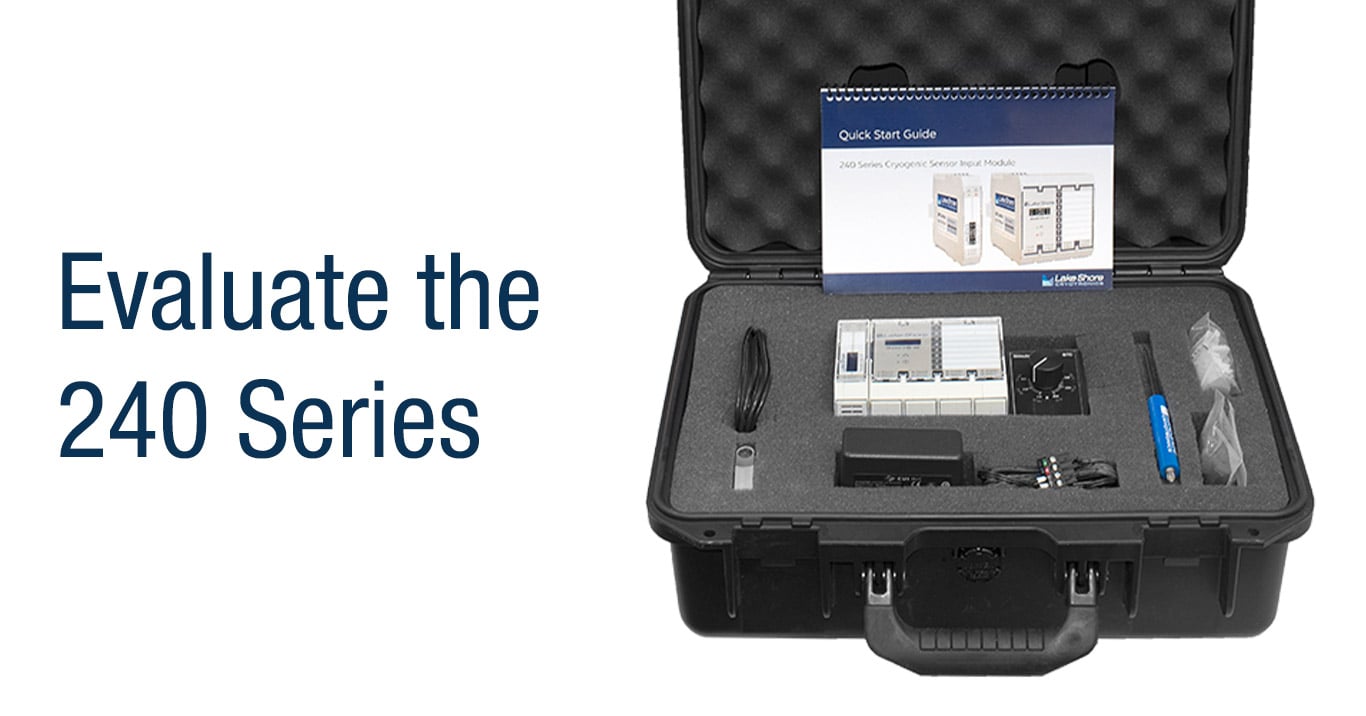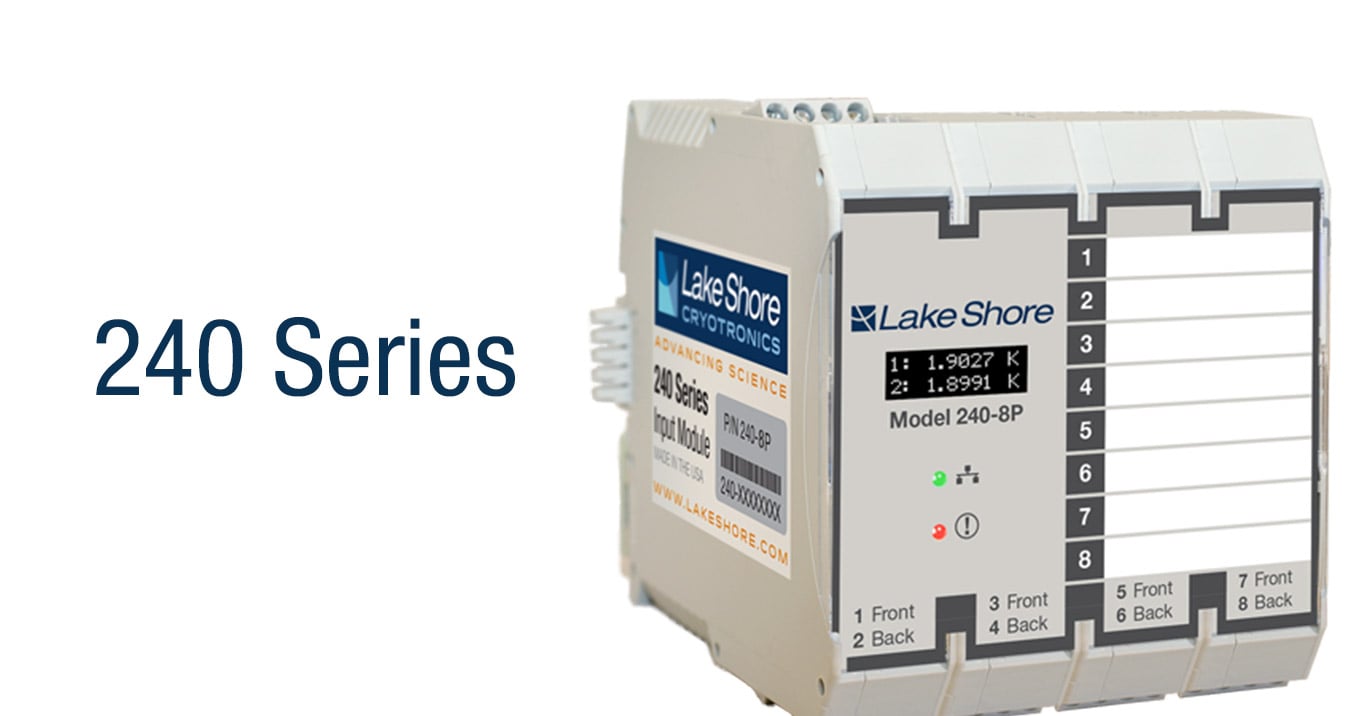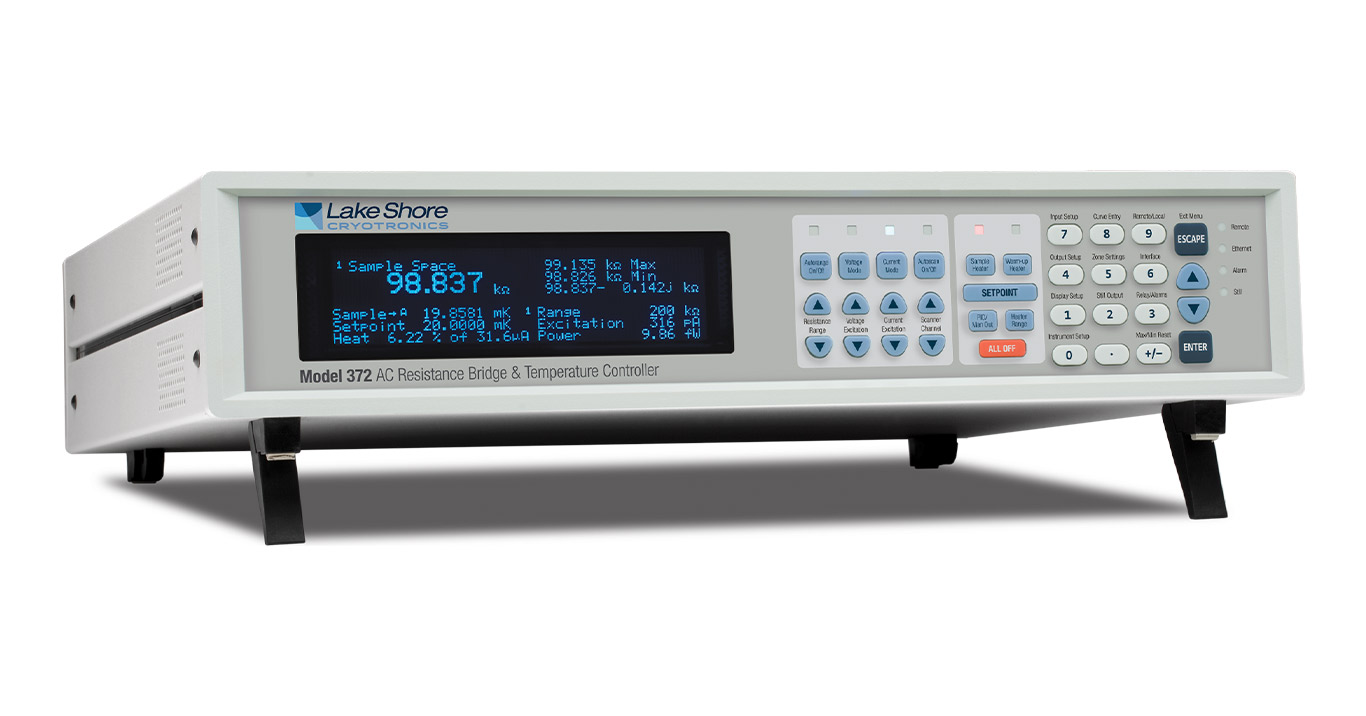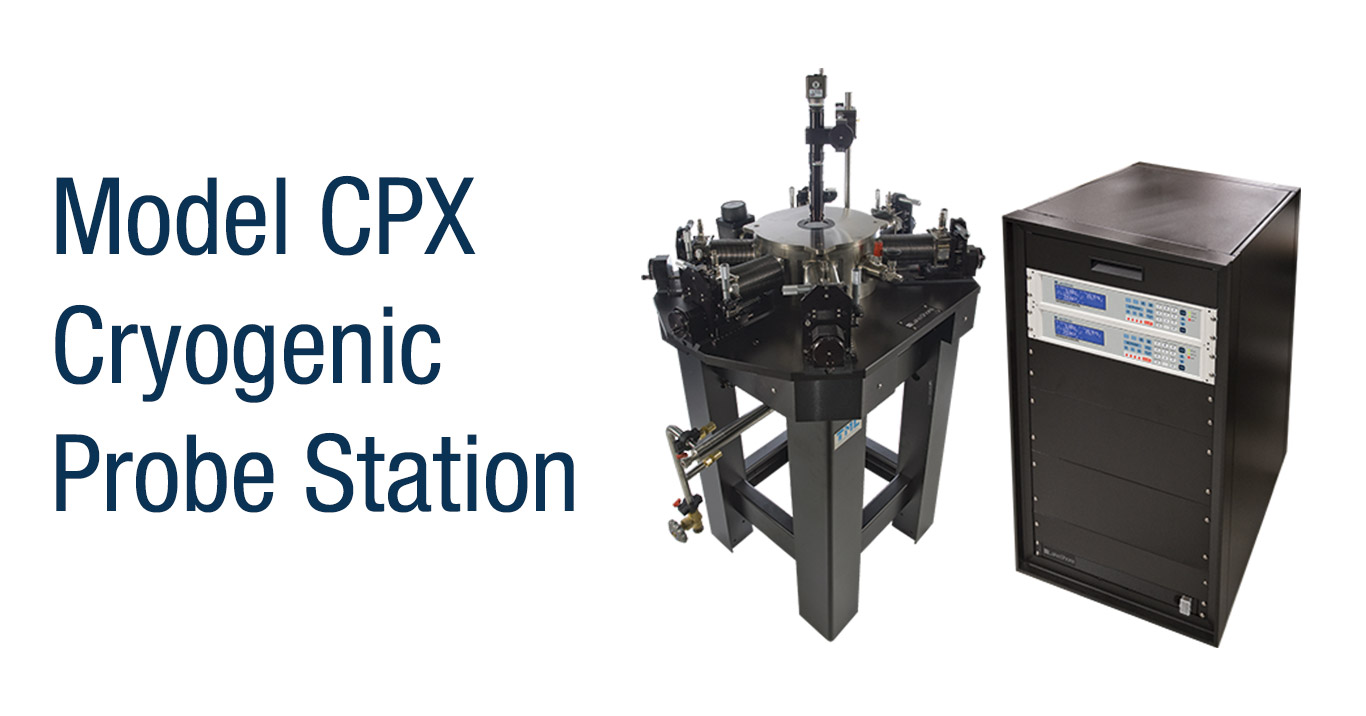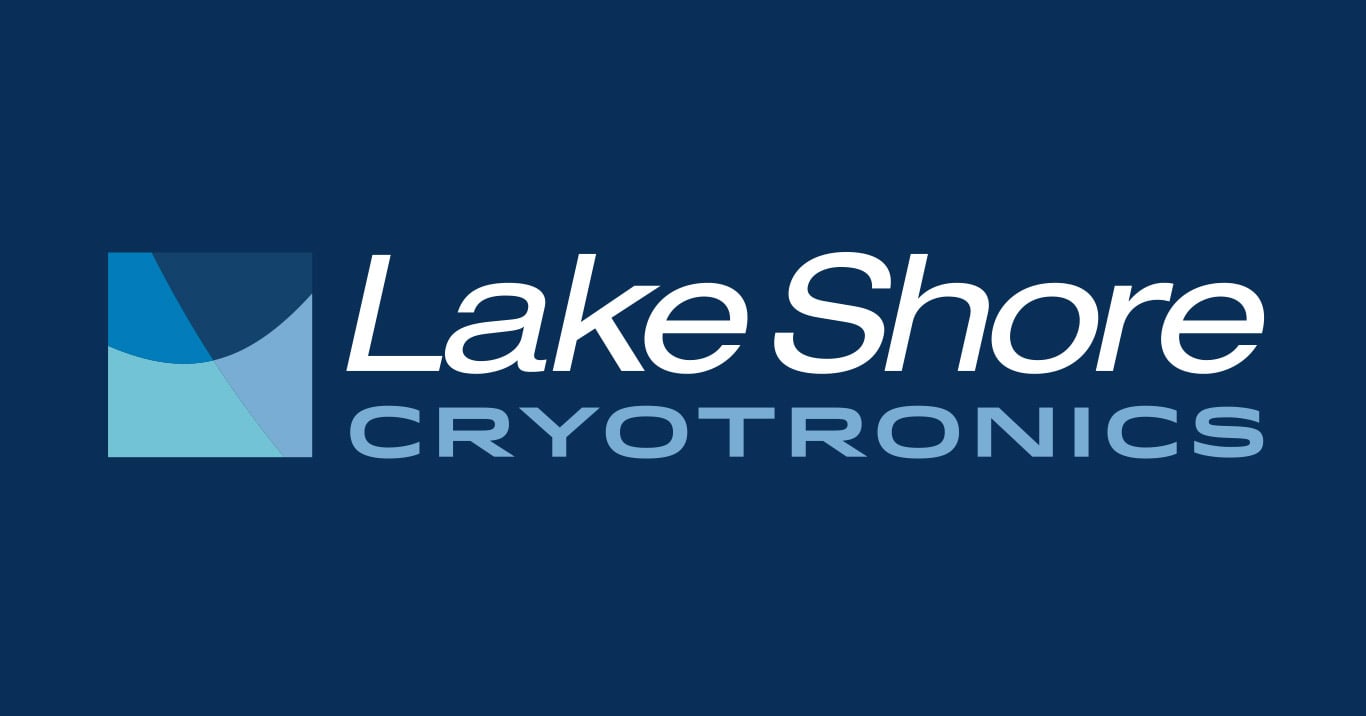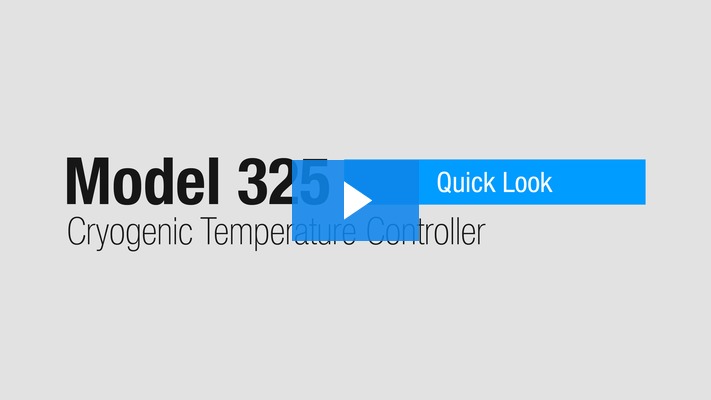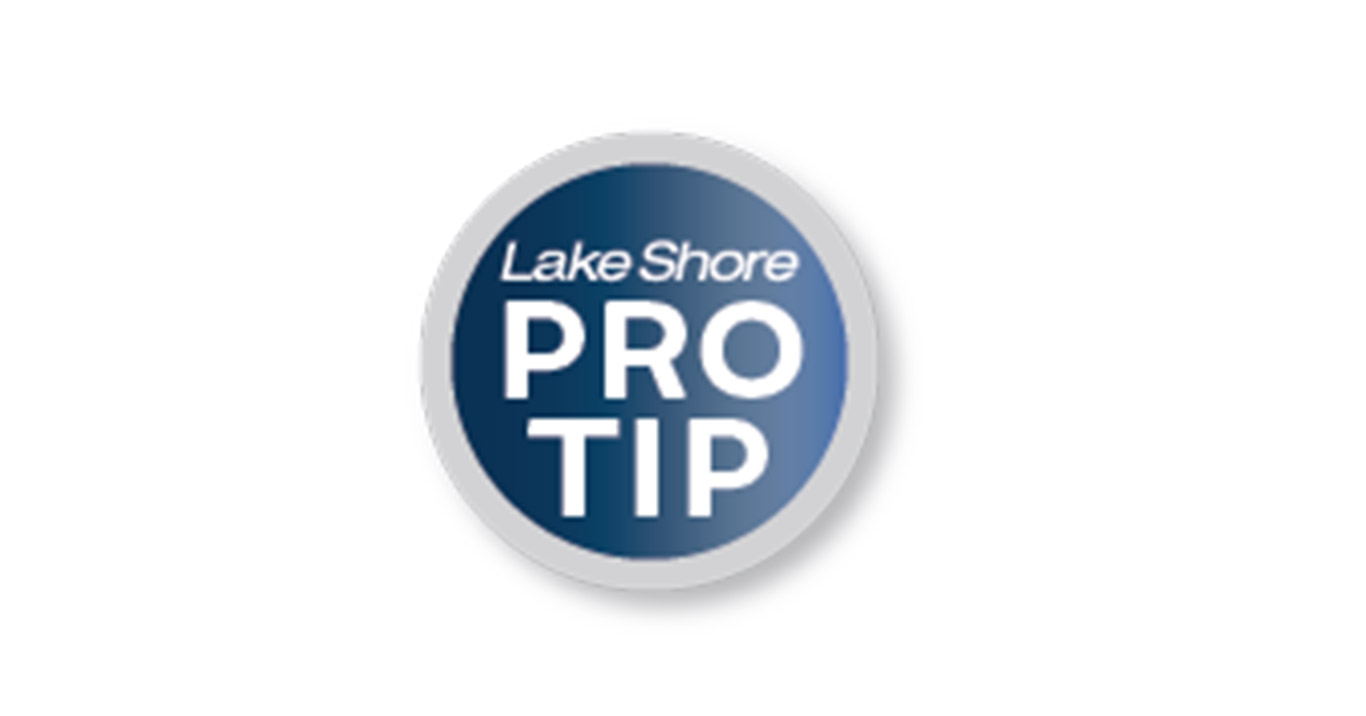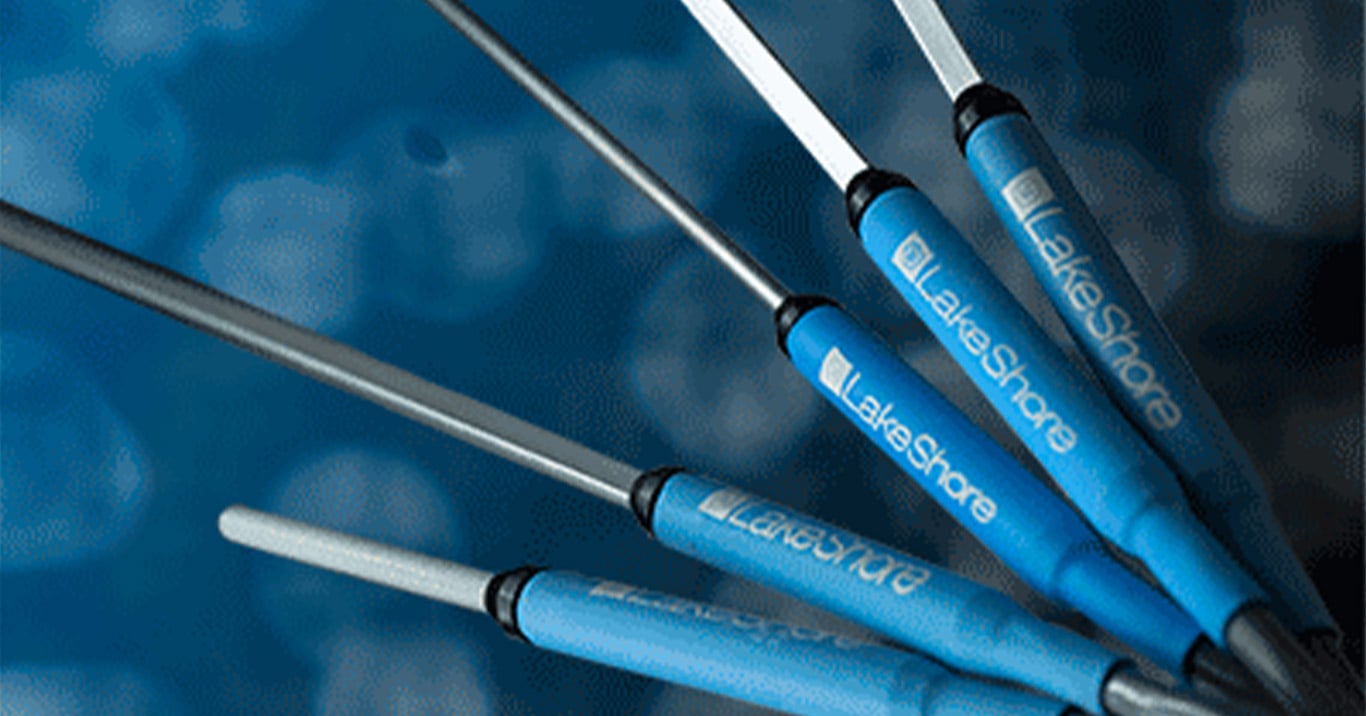It’s a question we get often from customers who are evaluating their options for sample cooling: What are the main differences between pulse tube cryocoolers (PT) and Gifford-McMahon cryocoolers (GM)?
If you own a Lake Shore gaussmeter or Hall probe, please note that we recently introduced a new priority service in which we offer a guaranteed two-day turnaround on recalibration once the instrument [...]
With the release of the 240 Series input modules, we are receiving lots of requests for modules to test in user facilities. To make the process of evaluation easy, Lake Shore recently introduced a [...]
In large-scale high-energy physics applications, cryogenic monitoring electronics have traditionally been placed close to the temperature sensors, mainly because of the very small signals used to [...]
Model 372 AC bridge and temperature controller
It’s been over a year since Lake Shore introduced the Model 372, the successor to our widely popular Model 370 AC resistance bridge. We are pleased to [...]
If you’re looking for a simple way to transfer samples from a glovebox, drybox, or other inert atmosphere container to a high-vacuum, cryogenic probing environment, this may be of interest to you: a [...]
Temperature sensors either follow a known standard response within a given tolerance, or they must be calibrated against known standards. Lake Shore provides different levels of sensor calibration [...]
We have released two new quick-look videos: the Model 325 temperature controller and the Model 224 temperature monitor. In these videos, Ryan Oliver, Sensors & Instruments Product Manager for Lake [...]
Finding a good place to mount cryogenic sensors in some locations, like an already crowded cryostat, is never easy. In general, a setup where the entire load and sample is at the same temperature is [...]
At various stages of the manufacturing process, an engineer or technician may be required to check to see if assemblies containing magnets meet certain specs. This could range from incoming [...]

